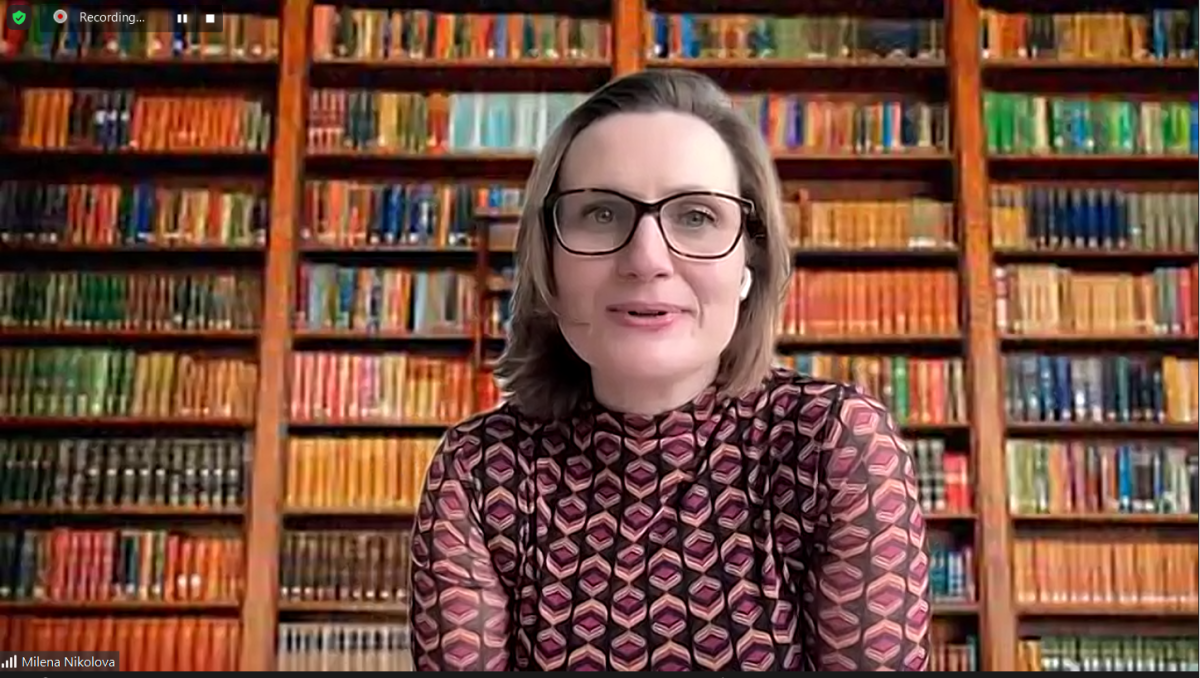A new GLO Discussion Paper analyzing a dataset of over 1.9 million individuals from 156 countries finds that both inflation and unemployment associates negatively with confidence in financial institutions.
GLO Discussion Paper No. 1341, 2023
The societal costs of inflation and unemployment – Download PDF
by Popova, Olga & See, Sarah Grace & Nikolova, Milena & Otrachshenko, Vladimir
GLO Fellows Olga Popova & Milena Nikolova


Author Abstract: What are the broad societal implications of inflation and unemployment? Analyzing a dataset of over 1.9 million individuals from 156 countries via the Gallup World Poll spanning 2005 to 2021, alongside macroeconomic data at the national level, we find that both inflation and unemployment have a negative link with confidence in financial institutions. While inflation is generally unassociated with confidence in government and leadership approval, unemployment still has a strong negative association with these outcomes. While we find no gender differences in the consequences of inflation and unemployment for confidence in political and financial institutions, the associations we document are more substantial for the cohorts that are likely to bear a disproportionate burden from inflation and unemployment-the middle-aged, lower-educated, and unmarried individuals, and for those living in rural areas. Uncertainty about the country’s economic performance and one’s own economic situation are the primary channels behind the associations we identify. These findings hold significant implications for policymakers, Central Banks, and public discourse, necessitating targeted strategies to alleviate the social consequences of inflation and unemployment.
Featured image: paul-fiedler-unsplash
Journal of Population Economics (JOPE)
JOPE (2022): CiteScore 9.2 (LINK) & Impact Factor 6.1; 524 K Downloads
JUST PUBLISHED
ONLINE FIRST: 32 articles forthcoming in Volume 36, Issue 4, 2023. Covered issues: Historical demography; fertility and marriage; migration and refugee issues; health, vaccinations, risky behaviors; education; retirement; gender issues and preferences
CALL FOR PAPERS
JOPE invites paper submissions for the following collections:
– Abortions
– Covid-19 and diseases
– Lifecycle fertility models
– Sexual and domestic violence
– Sexuality including LGBT issues
– Statistics & measurement of population economics
For more details and for examples of already published papers in these collections see:
https://glabor.org/collections-journal-of-population-economics-invites-paper-submissions-in-six-research-areas/
https://link.springer.com/journal/148/collections
JOPE Collections are a set of published papers on issues of significant relevance for the journal. Authors are continuously invited to submit their related work for evaluation stating their specific interest to contribute in the submission cover letter. JOPE Editors will treat those submissions with particular interest and speedy handling. Articles will be immediately published after final acceptance.

GLO Discussion Papers are research and policy papers of the GLO Network which are widely circulated to encourage discussion. Provided in cooperation with EconStor, a service of the ZBW – Leibniz Information Centre for Economics, GLO Discussion Papers are among others listed in RePEc (see IDEAS, EconPapers). Complete list of all GLO DPs – downloadable for free.
The Global Labor Organization (GLO) is an independent, non-partisan and non-governmental organization that functions as an international network and virtual platform to stimulate global research, debate and collaboration.
Ends;

